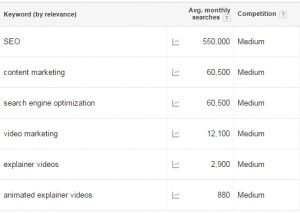— December 17, 2018

skylarvision / Pixabay
Cybersecurity is something that is on everyone’s minds these days. From the risks of potential hackers to phishing schemes, we’re always wondering what new threat will come to the surface. In addition to these problems, website owners have their own worries about security as well.
Any website owner should take steps to ensure the security of their website, and small business owners are no different. Especially if you’re in the work of eCommerce, keeping your customer’s and business’s data protected is critical. You can bolster your website security in many ways, but one of the core aspects you can focus on is understanding the difference between HTTP and HTTPS.
What Are HTTP and HTTPS?
You’ve probably heard of HTTP before. It’s that thing that comes before a URL when you’re browsing the internet. What you might not know is just what it does. In short, HTTP stands for Hypertext Transfer Protocol. It’s a system for transmitting and receiving information through the internet. Because we have HTTP in place, browsers can connect to servers, allowing for everyone to access webpages. You couldn’t access Twitter or look up the news without it.
You’ve also probably encountered HTTPS before, though you just might have wondered what the S means before getting back to work. Even if you haven’t noticed that the S was there, you’ve probably come across some indication in your web browser that the site you’re on is HTTPS. Most browsers add an extra icon or color to the URL bar to indicate when HTTPS is in place.
That little icon tends to be some form of a lock, which shows a very straightforward message: the site you’re on is secure. The S stands for just that, indicating that any data transferred over the site will be much safer than it would be on one that was just HTTP. This is because HTTP doesn’t encrypt data, while HTTPS does.
The encryption happens thanks to an SSL (secure sockets layer) certificate, allowing for only permitted parties to access data. When you get into the technical details, the use of public and private keys allows the access point and server to authenticate with each other before the exchange of any information.
In short, HTTPS is the secure version of HTTP, which is a good thing for any website.
Why You Should Use HTTPS for Your Small Business Website
In the past, most websites only used HTTP. This still applies to today, but more and more websites are making the switch over to HTTPS. Part of this comes from greater awareness of cybersecurity, while a lot of the influence also stems from Google. Whether you’ve just started your small business website or have been around for a while, you should consider HTTPS.
1. Security
This may sound obvious, but having a website with HTTPS will make it more secure. In fact, if you work with eCommerce, having HTTPS isn’t an option. Your website is going to work with sensitive information, like your customer’s credit card information. If you leave that unencrypted, you’re going to have very unhappy customers on your hands. Some buyers may even back out of a transaction if they noticed your website isn’t secure.
Even without eCommerce, you should still have HTTPS. Any information transferred over your site, even if it’s not high-risk data like payment information, can still create risks if left unsecure. An intruder may be able to tamper with communications and inject malware into browsing visitors. HTTP leaves your site open to these attacks.
And, lastly, having a secure site makes your visitors feel comfortable. When you’re showing that you have their online security in mind, you become trustworthy. The use of security seals can also help to increase conversion rates. Anything that gives your visitors a better browsing experience is something all small business owners should consider.
2. SEO
We’ve talked about Search Engine Optimization before, which helps your site have better search engine rankings. Google’s trends lead much of SEO best practices, and one of those is the preference for sites that use HTTPS. The security benefits are the driving factors for this algorithm, which means integrating HTTPS can give your business an edge.
HTTPS doesn’t carry as much weight as some of the other components in SEO, but it’s still important. If you and a competitor are roughly equal in terms of all other SEO elements, Google will favor the site that has security over one with just regular HTTP. Anything that boosts your rankings is worthwhile.
3. The Declining Trend of HTTP
It’s SEO algorithms aren’t the only place that Google is prioritizing security. A recent change to Google Chrome is in how it displays secure site information. Instead of just putting a security logo in the URL bar, Chrome will actively let users know when they’re entering an unsecure site.
From Google’s end, this is because they want to make secure webpages the norm, rather than an option. For you as a business owner, that notification could lead to visitors leaving your site, which isn’t very appealing. Switching your site to HTTPS can prevent this issue altogether.
As cybersecurity awareness increases, so does the need for providing a safe web experience. To make the most out of your small business website, you should take the steps to use HTTPS, regardless of whether you conduct eCommerce or not. If you can’t afford to integrate more complex security features to your site, this is the most basic step you can take.
For more ways to help your small business, look forward to the next post in our series on video campaigns!
Series Articles
Part 1: Simple Tech for Small Business Owners, Part One: SEO
Part 2: Simple Tech for Small Business Owners, Part Two: PPC Advertising
Part 3: Simple Tech for Small Business Owners, Part 3: Google Analytics
Part 4: Simple Tech for Small Business Owners, Part Four: WordPress
Part 5: Simple Tech for Small Business Owners, Part 5: HTML
Part 6: Simple Tech for Small Business Owners, Part 6: HTTP vs HTTPS
Part 7: Simple Tech for Small Business Owners, Part 7: Video Campaigns
Part 8: Simple Tech for Small Business Owners, Part 8: CSS
Part 9: Simple Tech for Small Business Owners, Part 9: Domain Names
Part 10: Simple Tech for Small Business Owners, Part 10: How to Measure Your PPC Campaign
Orginally from Business & Finance Articles on Business 2 Community
(85)
Report Post








3 thoughts on “Simple Tech for Small Business Owners, Part 6: HTTP vs HTTPS”
Comments are closed.